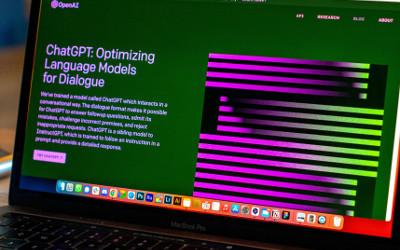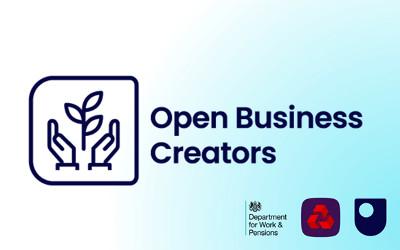Generative AI and argumentation skills project launched in collaboration with HKMU

A research initiative exploring the role of generative artificial intelligence (AI) in enhancing students' critical thinking and argumentation skills was launched on 7 October 2024. The project, titled Digital Thinking in Action: Exploring Generative AI for Argumentation, is a three-year project and joint effort between Hong Kong Metropolitan University (HKMU) and The Open University (OU) on the OU’s Open Societal Challenges platform. This international collaboration is poised to transform how AI tools are used in higher education.
Dr Edsoulla Chung, Assistant Professor at HKMU’s School of Education and Languages, and Dr Paul Piwek, Senior Lecturer at the OU’s School of Computing & Communications, lead the project with Professor Peppina Lee, Associate Dean at HKMU’s School of Education and Languages, serving as a collaborator. The project aims to address a critical gap in educational practices. It focuses on how students currently use AI in constructing academic arguments and explores how these technologies can be leveraged to improve reasoning and critical thinking.
A global research effort
The research will involve a large-scale study of 800 undergraduate students - 400 from Hong Kong and 400 from the UK. The project will be conducted in two phases, starting with a comprehensive survey of students' students' beliefs, knowledge, and practices regarding the use of AI tools like chatbots for developing academic arguments. The second phase will focus on designing learning activities that integrate AI into academic courses to help students not only construct arguments but also critically evaluate the AI-generated content.
Dr Chung, who will oversee the Hong Kong portion of the research, emphasised the importance of developing students' ability to discern reliable information in the digital age: "Many students are using AI tools like chatbots to assist in their academic work, but they may not fully possess the skills to critically assess the information these systems provide. Our project will equip them with the knowledge to use AI responsibly and effectively, ensuring that AI becomes a tool for enhancing their argumentation skills rather than a crutch."
Dr Piwek, who leads the UK component of the research, highlighted the innovative nature of the project. "This is a unique opportunity to explore how AI can actively assist in one of the most complex areas of learning argumentation. Students often struggle with constructing well-reasoned arguments, especially when it comes to incorporating evidence or considering counterarguments. Generative AI has the potential to revolutionise this process by helping students navigate through multiple perspectives, but we need to ensure they do so in a way that strengthens their critical thinking, not weakens it."
Why argumentation?
Argumentation is a core skill in both academia and the professional world, essential for students' success across disciplines such as law, politics, science, and business. However, research shows that many students, particularly those for whom English is a second language, find it difficult to construct coherent and evidence-backed arguments. Studies have also indicated that students rarely include counterarguments or rebuttals in their work, which weakens their overall reasoning.
AI chatbots, like ChatGPT, are increasingly being used by students to support their academic work, generating content and providing quick answers. However, without proper guidance, students can become over-reliant on these tools, risking poor-quality arguments and even misinformation, as AI-generated content is not always factually accurate.
A pioneering approach to AI in education
The Digital Thinking in Action project will take a more structured approach to using AI in the classroom. In the second phase of the project, the research team will design and pilot AI-driven learning activities that will be integrated into regular coursework for selected English for Academic Purposes (EAP) classes at HKMU and Computing and IT courses at The Open University.
These activities will encourage students to use AI to generate arguments but also teach them how to evaluate the validity and reliability of the information produced by AI systems. This multimodal approach, combining AI tools with traditional argument mapping techniques, will provide students with the scaffolding they need to become proficient in critical thinking while using digital tools.
The findings from this study will have broad implications for both educational technology and pedagogical practices. The project is expected to produce evidence-based recommendations for integrating AI tools into higher education, with a particular focus on enhancing argumentation skills in early undergraduate students.
About Open Societal Challenges
The OU’s Open Societal Challenges programme aims to tackle some of the most important societal challenges of our time through impact-driven research.
The Programme’s focus on the themes of Tackling Inequalities, Living Well and Sustainability align well with the OU’s mission to be open to people, places, methods and ideas.
The Programme's aim is to apply excellent research by OU academics to some of the most pressing challenges facing people across the UK and worldwide to transform lives and drive societal change.
Contact our news team
For all out of hours enquiries, please telephone +44 (0)7901 515891
Contact detailsNews & articles

Grant recipients announced for the 2025 Open Business Creators Fund for Women in Business
The businesses selected to receive funding from the Open Business Creators Fund for Women in Business, (delivered by The Open University and sponsored by NatWest) have been announced.